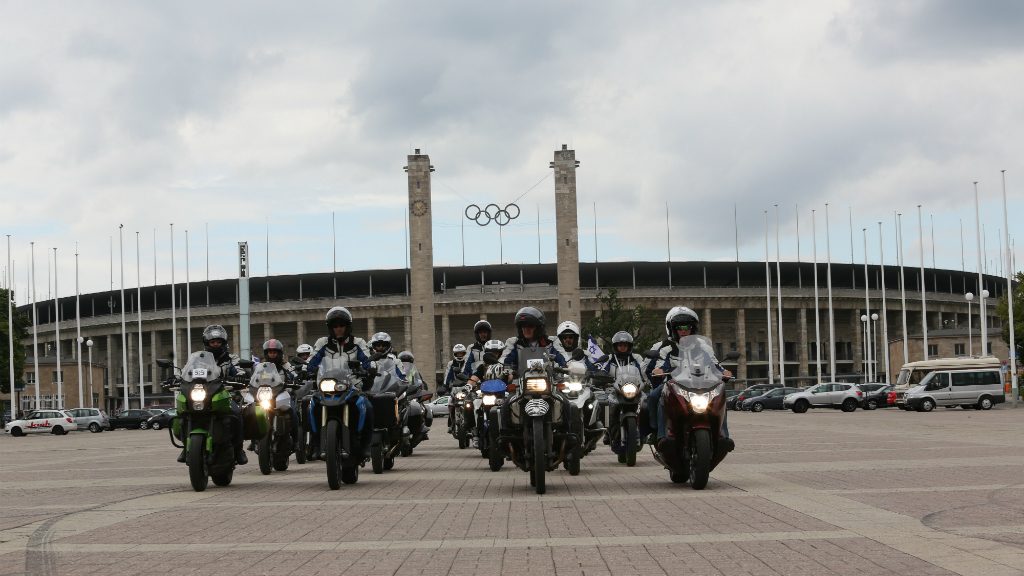Catherine Lurie's documentary Back to Berlin is a road movie with pointed diversions and layovers. The travellers at its centre are 11 Israeli bikers, many the offspring of Holocaust survivors, who serve as ambassadors for the Maccabiah Games, the ongoing multisport event initiated in 1932 to showcase Jewish athletes and counter the world's mounting anti-Semitism. In 1935, a year before the Hitler Olympics, a similar band of bikers set out to Germany to promote the Maccabiah Games' second iteration; eighty years on, Lurie found a latter-day pack revving up their engines and setting out across a newly fraught continent by way of anniversary tribute. The destination - once more, the German capital - was, perhaps inevitably, less important than the journey, mapped out as a reckoning with the past. In Thessaloniki, the bikers are seen to sweat it out in one of the train carriages that carried their forefathers to the camps; in Romania, they visit a synagogue in which worshippers were rounded up for torture, then the fields where they were executed; eventually, the party turns itself towards Auschwitz. Less predictably, their route also led them into a confrontation with the present day. The bikers are advised not to fly the Star of David while passing through the Greece of the Golden Dawn movement; at the border between Hungary and Serbia, they witness police clashing with protesters over the fate of Syrian refugees being held there. There is a sense the bikers are reclaiming roads and routes the Nazis once marched along (as the most senior, Yoram Maron, declares: "It is better to come to Auschwitz by bike than by train"); yet we also sense how, though the faces and colours have changed, we persist in playing the same games in the 21st century as our predecessors did in the 20th, and thereby risk a similar outcome.
The film could have been no more than a dusty memorial or dry history lecture, but Lurie has evidently realised the advantages to be gained from putting this story in the hands and hearts of subjects who have the wind behind them and a tank full of gas. It keeps matters moving and changes the scenery, for one, and because it covers more ground than most films of this type, Back to Berlin moves towards an idea of the Holocaust, which some might conceive of as limited to a small handful of ghettos and a few damp campsites, as far-reaching tragedy - a scar running the entire length of the continent. (It had to have been: just look at the numbers involved.) That said, some passages come to carry more weight than others. The physical realities of Auschwitz prompt Maron into telling or retelling the story of what he experienced in the camps as a child, and again one is amazed that, after so many hours of cinema on this subject, there are still fresh horrors to be excavated and brought back to the surface. The filmmaking surrounding such raw moments is more often solid than especially inspired: there are a few visual clichés (more drone shots for the sake of drone shots), and the odd shaky creative choice (a slightly overstated Jason Isaacs voiceover, the sloppy stretching of 4:3 archive footage into 16:9) here and there. Yet the overriding seriousness of the bikers' project, and of Lurie's direction, keeps Back to Berlin on something like the right course: it's a film that sets out to remind us, and succeeds in reminding us, of where we've come from, and exactly where we are today.
Back to Berlin is now playing in selected cinemas.

No comments:
Post a Comment